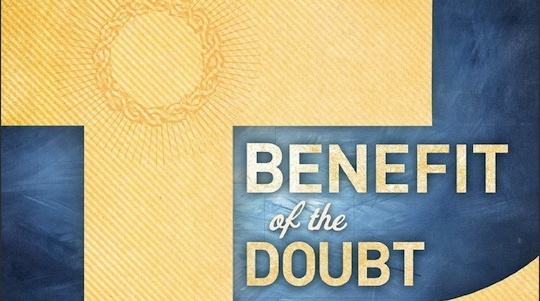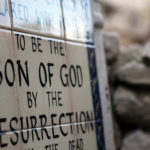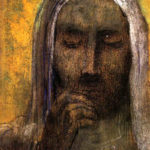We run our website the way we wished the whole internet worked: we provide high quality original content with no ads. We are funded solely by your direct support. Please consider supporting this project.
Quotes to Chew On: Conflicting Depictions of God
 “This is something like the way I believe we should respond when we encounter biblical narratives that depict God doing things we can’t imagine Christ doing. For example, I can’t for a moment imagine Jesus—the one who made refusing violence and loving enemies a condition for being considered a child of God—commanding anyone to mercilessly slaughter anyone, let alone an entire population that included women and infants. And yet, Yahweh is depicted as doing this very thing in a book that Jesus himself considered inspired, and thus a book that I, out of obedience to him, feel compelled to regard as inspired.”
“This is something like the way I believe we should respond when we encounter biblical narratives that depict God doing things we can’t imagine Christ doing. For example, I can’t for a moment imagine Jesus—the one who made refusing violence and loving enemies a condition for being considered a child of God—commanding anyone to mercilessly slaughter anyone, let alone an entire population that included women and infants. And yet, Yahweh is depicted as doing this very thing in a book that Jesus himself considered inspired, and thus a book that I, out of obedience to him, feel compelled to regard as inspired.”
“I submit it would be unfaithful to Christ and the relationship he has forged with us on the cross to allow this or any other narrative to call into question the loving character of God that he reveals. So too, it would be unfaithful for us to invest this or any similar narrative with the same authority we invest in Christ and to thereby conclude that Jesus only reveals part of God—as though there is a merciless violent streak in God that remains hidden behind the cross.”
“A more faithful response, I believe, is to instead assume that there must have been things going on behind the scenes that we are not privy to. And until we can ask him face to face, the faithful thing to do is to try and imagine what this “something else” might have been.”
Boyd, Gregory, Benefit of the Doubt: Breaking the Idol of Certainty, p.192, Baker, 2013
Category: General
Tags: Benefit of the Doubt, Cruciform Theology, Jesus, Quotes
Related Reading

Jesus, the New Israel
The Gospels present Jesus and the Kingdom he inaugurated as the fulfillment of Israel’s story. For example, Jesus’ birth fulfills Israel’s longing for a Messiah; his return from Egypt as a child mirrors their Exodus out of Egypt; his temptations in the desert allude to Israel’s temptations in the desert; his twelve disciples recall the…

Podcast: If the Biblical Prophecies are Flawed, Aren’t Those Prophets ALL False Prophets?
If you want to hear Greg sweat, listen to him work through this really really good question. http://traffic.libsyn.com/askgregboyd/Episode_0200.mp3 Photo by Rex Boggs

The Key to Understanding the Bible
In yesterday’s post we discussed how Jesus is the starting point for interpreting Scripture. If this is the case and Jesus is the subject matter of all Scripture, then the ultimate challenge is to disclose how each aspect of Scripture bears witness to his subject. To state it otherwise, if the intended function of all Scripture is to mediate…

Isn’t it contradictory to say Jesus is “fully God” and “fully human”?
READER: God is, by definition, eternal, having neither beginning nor end. Human beings are, by definition, finite, beginning at a certain point in time. How, then, can Jesus be both God (eternal) and human (finite)? Isn’t that a contradiction? Similarly, while God is omniscient, humans aren’t. How could Jesus be both omniscient God and non-omniscient…

God’s Dream for the World
The future doesn’t yet exist—which is why it’s future instead of the present or past—this doesn’t mean I’m claiming the future is wide open. To the contrary, it’s very clear from Scripture that God has a great plan for the future, and this plan steers the course of history by setting limits on what can…

The Challenge of Malala to the Church
http://youtu.be/f506lCk6Tos I don’t know if you’ve seen this, but it’s Malala Yousafzai appearing on Jon Stewart’s The Daily Show. At the age of 14 Malala was shot in the face at point blank range by the Taliban while riding to school on a bus, all because she wouldn’t stop speaking up for the right of…
